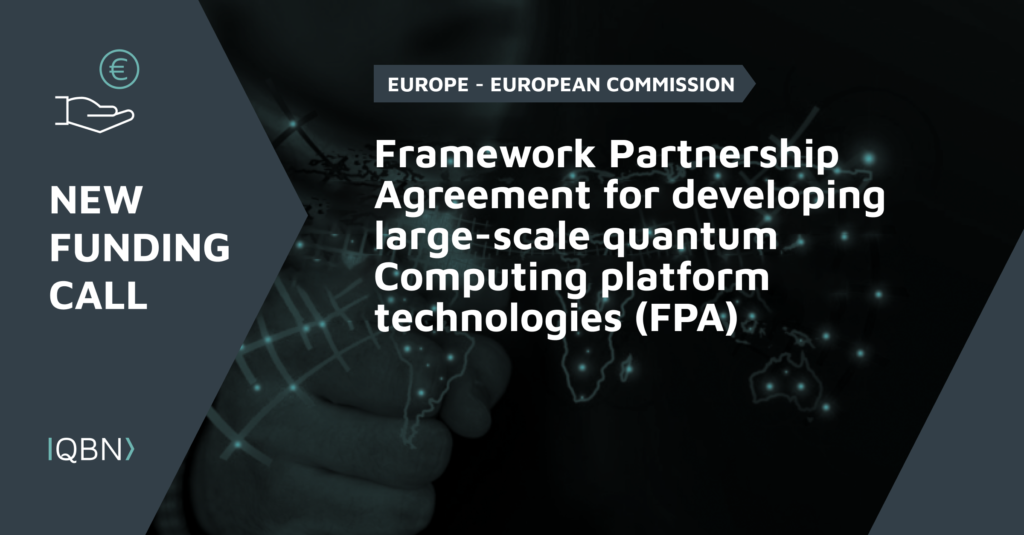Expected Outcome:
The Framework Partnership Agreement (FPA) in quantum computing is expected to establish a stable and structured partnership between the Commission and the institutions and organisations in quantum computing who commit themselves to establishing, maintaining and implementing a strategic research roadmap aligned with and contributing to the Quantum Flagship Strategic Research Agenda in a scalable open quantum computing platform based on a specific quantum platform technology.
The consortia responding to the call may include research institutes, universities, RTOs, foundations, industry, SMEs as well as other organisations that can play a role in the realisation of these quantum computing platforms. The FPA will specify the objectives, the nature of the actions planned, and the procedure for awarding specific grants. The FPA is expected to contribute to the following outcomes:
- Demonstrate a universally programmable processor of at least 200 physical qubits (by 2027) operating in the NISQ domain including firmware and having sufficient coherence to perform computations involving all of its qubits; characterised with a hardware-agnostic test suite, including real-world applications, including for hybrid quantum/HPC computing, and the capability of out-performing classical computers on a number of relevant real-world use-cases; control needs to involve a low-level control system, a compiler and a scheduler.
- By 2029, build a full stack, highly connected, high fidelity quantum computer of at least one thousand physical qubits, exhibiting scalability and capable of out-performing classical computers on relevant real-world use-cases.
- Formulate standards and interface specifications for a complete software and hardware stack including remote, cloud-based access.
Scope:
Fostering a vibrant European quantum computing industry will require hardware, software, and the development and maintenance of user interfaces and applications. Proposals for this FPA are expected to build on the quantum computing platforms supported under the Quantum Flagship ramp-up phase. Proposals should target the development of open quantum computing platforms compatible with the fabrication techniques of the semiconductor industry (e.g. silicon spin qubits), integrating the key building blocks such as quantum processors in the NISQ regime with control electronics, low-level software, verification and validation of the quantum computation, etc.
Deadline: 29 March 2023 17:00:00 Brussels time
For more information, please visit the European Commisssion website.



